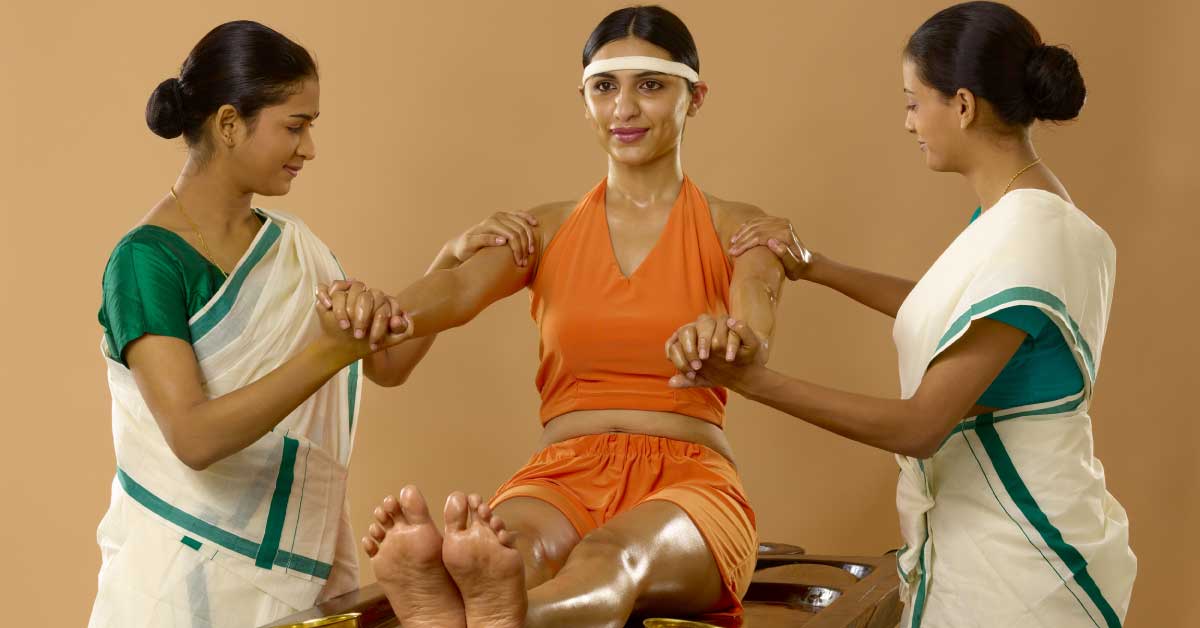Abhyangam

Abhyangam can be easily explained as massaging of the body using medicated oils. But the Abhyangam differs from other type of massages. This is not just a massage but a mode of treatment. It comes under the Snehana type of treatment. That is, the treatment provides moisture, nourishment and strength to the body.
The direction of the massage and the pressure used to massage are very important. The directions regarding how the Abhyangam should be done is given by the physician after proper analysis of the person and his/her condition by the physician.
The Abhyangam is done as both a treatment and as a rejuvenation therapy. It can be done either on whole body or as locally.
The Abhyangam is so important that it is advised to practice Abhyangam every day as a regimen. Practising Abhyangam will:-
- Ward off old age
- Reduces tiredness
- Pacifies vitiated Vata Dosha
- Provides good vision
- Nourishes the body
- Bestows long life
- Provides good sleep
- Good and healthy skin
- Increases the circulation of blood
- Increases the functioning of nerves
- Strengthens the muscles etc.
The whole body should be massaged along with head. But those who are suffering from diseases caused by Kapha Dosha, who have just completed the purificatory therapies and those who are suffering from indigestion, should not follow this.
HOW THE ABHYANGAM IS DONE?
The medicated oil used for the Abhyangam is selected according to the condition of the person. The oil is used warm. The person is asked to be seated on the Dhroni, a special table, and the medicated oil is applied all over the body or the area where the Abhyangam is done.
The Abhyangam is done in many positions. Also according to the area, the direction of the Abhyangam also changes.
Usually prone position is avoided in the persons with chronic lung and heart diseases.
After the procedure the oil is wiped off. The patient is allowed to take rest and thereafter is allowed to bath in lukewarm water.
INDICATIONS
The Abhyangam is indicated in the conditions like:-
- Diseases caused by the Vata Dosha
- Hemiplegia
- Low back ache
- Sciatica
- Osteoarthritis
- Rheumatoid arthritis
- Many other neuro-muscular disorders etc.
CONTRA-INDICATIONS
The persons with the following conditions should not undergo Abhyangam:-
- Fever
- Cold
- Oedema
- Haemorrhage
- Indigestion etc.
Before undergoing any procedure the person must consult a physician and provide a detailed history of his/her health, as the benefits of the treatment depends on how you give your details. The present and past conditions are important. Inform the physician about the regular medicines used, if any.

Leave a Reply
Want to join the discussion?Feel free to contribute!